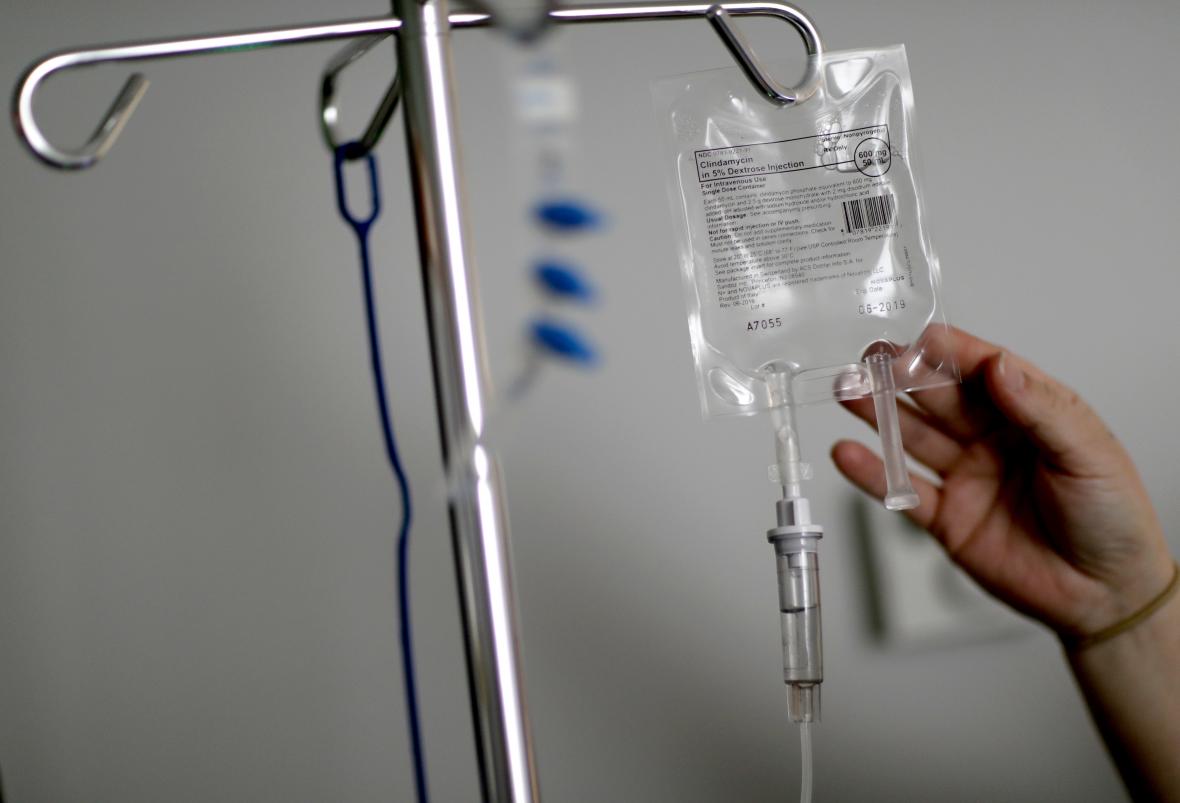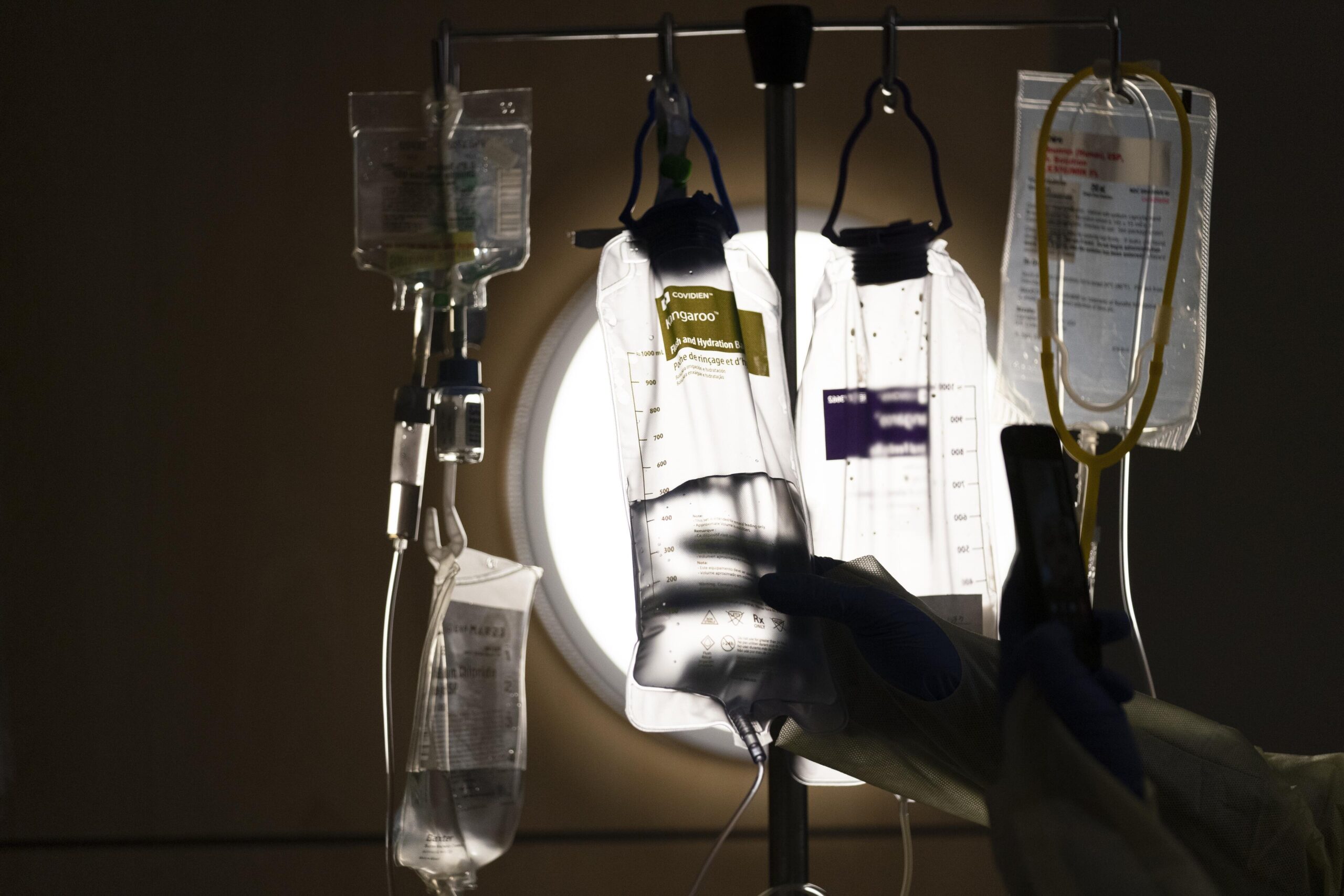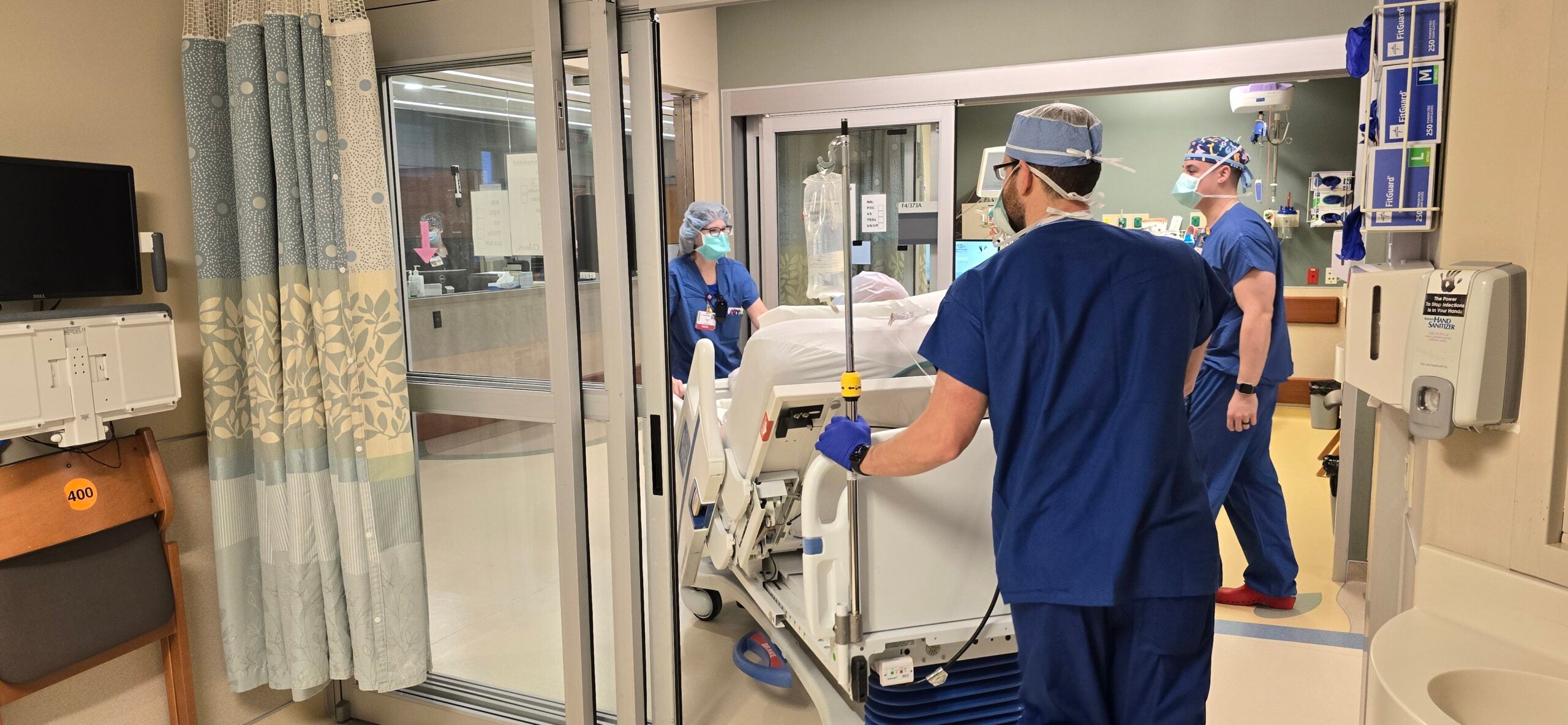Wisconsin health care providers continue to feel the effects of a national shortage of IV fluids.
Baxter, the nation’s top manufacturer of IV and irrigation fluids, experienced severe damage from Hurricane Helene at their plant in western North Carolina at the end of September. The plant produced around 60 percent of all IV fluids used daily in the United States, creating a shortage of the products nationwide.
As of this week, Baxter is working to restore its second manufacturing line at the North Carolina plant. Baxter has said late November will be the earliest products will start shipping from the plant.
News with a little more humanity
WPR’s “Wisconsin Today” newsletter keeps you connected to the state you love without feeling overwhelmed. No paywall. No agenda. No corporate filter.
Over the last month, health systems around Wisconsin have taken steps to manage their supplies and in some cases reduce their use of IV fluids to conserve the products.
Children’s Wisconsin in Milwaukee is one of the hospitals that sources their IV and irrigation fluids from Baxter.
Dr. Rainer Gedeit, chief medical officer at Children’s Wisconsin, said they’ve been breaking down supplies into smaller quantities to prevent waste or finding alternatives when appropriate.
Gedeit, who is a pediatric critical care specialist, said IV fluids are most often used to combat dehydration or deliver medications.
“In times when you have plenty of everything, you really don’t have to worry about how much we’re using and how often we’re using it,” he said. “But what we’re really doing now is critically evaluating. Instead of starting IV fluids, can this person drink some fluids for a couple more hours before going to surgery?”
Gedeit said the patients who have noticed the shortage most are those receiving frequent care for a chronic condition. He said these individuals have most likely been asked to hydrate as much as possible at home before coming in to receive medications or other treatment.
He said the conservation steps mean Children’s Wisconsin has a “more than an adequate” supply of the products and has not had to reduce surgeries or other services.
But Gedeit said they are expecting to have to continue limiting the use of these products through at least the end of the year. He said it will take time for Baxter to reach full production and fully restock their supplies.
A spokesperson for Froedtert Health in Milwaukee declined an interview request, but said in an email the health system continues to “closely monitor” their IV fluid inventory and plan ahead “for any supply disruption”.
“While we have enacted conservation methods aimed at reducing our usage of IV fluids, our current supply of IV fluids is meeting the needs of our patients,” the spokesperson said in an email, adding that Froedtert has “dedicated teams and robust processes” to address the challenges.
UW Health also declined to comment on the shortage. In a statement from Oct. 8, the Madison-based health system said they were “actively managing the situation” and there were no impacts to patient care.
In Green Bay, a spokesperson for Bellin Health said they have had “no operational impact due to the IV fluid shortage.”
“We have a team that meets weekly to review IV fluid status and ensure we continue to have enough on hand,” the spokesperson said in an email.
Wisconsin Public Radio, © Copyright 2025, Board of Regents of the University of Wisconsin System and Wisconsin Educational Communications Board.






